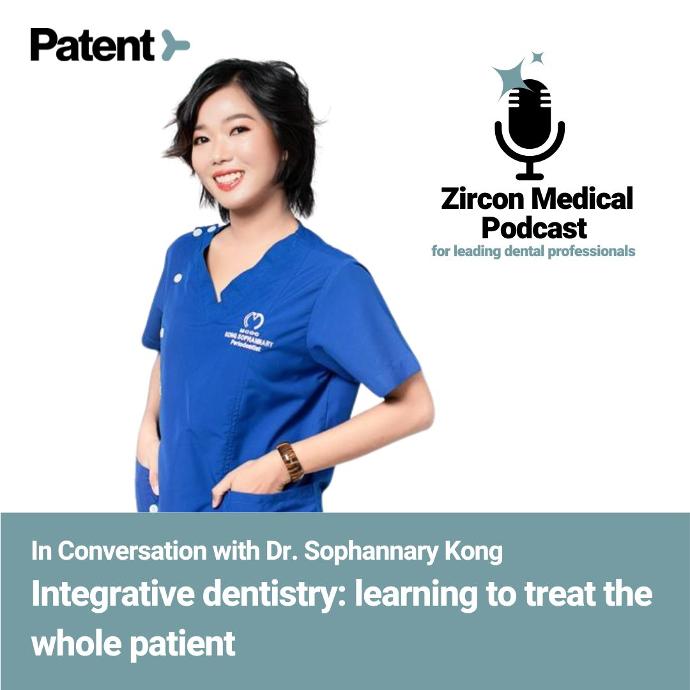Dr. Sophannary Kong
Dentist and researcher from Cambodia
D.D.S. degree in 2012 from University of Health Sciences (UHS), Cambodia
Ph.D. degree from Department of Periodontology, Tokyo Medical and Dental University (TMDU), Japan
Clinical practice includes aesthetic dentistry and implant and periodontal phototherapy using lasers and LEDs
- Website: https://mcdc.com.kh
- Instagram: https://www.instagram.com/dr_sophannary
LinkedIn: https://www.linkedin.com/in/sophannary-kong-b239083
YouTube: https://www.youtube.com/channel/UCpOOODbN63_soI3XQV1_Vmg/featured
691 Preah MonivongBlvd (93), Phnom Penh 12100, Cambodia
In Conversation with Dr. Sophannary Kong
Traditionally, the field of dentistry has been isolated from the medical field. The mouth has traditionally been viewed as an organ completely separate from the rest of the body, despite the growing body of evidence linking periodontal conditions with other systemic health problems. Dr. Sophannary Kong believes it’s time for the wider dental community to transition into treating the whole patient with integrative dentistry.
Our team at Zircon Medical recently hosted Dr. Sophannary Kong, also known as Dr. Nary, on our podcast series to discuss the value of integrative dentistry and laser dentistry.
Introducing Dr. Kong, a dentist and researcher from Cambodia
Dr. Kong is a dentist, dental educator, and researcher from Cambodia. She completed her dental degree from the University of Health Sciences (UHS), Cambodia, following which she pursued a Ph.D. degree in periodontology from the Tokyo Medical and Dental University (TMDU) in Japan. She comes from a long line of medical professionals — her brother is a dentist and her uncle is a medical doctor.
Dr. Kong says she was initially underwhelmed with dentistry. But when she pursued her Ph.D. degree, her mentor introduced her to laser dentistry, which made her realize that the field was broader than she had initially realized. But she still felt like patients who visited her only focused on their teeth and gums and were disconnected from the rest of the body.
When she came across integrative dentistry, Dr. Kong had an epiphany and realized this is what she must do. She has since dedicated herself to addressing her patients’ holistic health.
The two-way link between oral health and systemic health
Dr. Kong says that oral health conditions and systemic health problems are interlinked — the one influences the other and vice versa. Particular pathogens responsible for periodontal problems can release toxins into the body, thus triggering other health concerns. There’s a well-established connection between periodontitis and systemic health issues, such as diabetes, arthritis, respiratory problems, etc. But despite the growing awareness that the tooth’s problems are connected to other problems, few dentists take a holistic approach to oral health.
“There’s a strong two-way connection between the mouth and the rest of the body,” Dr. Kong says.“Something wrong can happen in the mouth, and it can trigger problems with other organs. And that problem can fire back at the tooth. For example, toxic substances in the liver because of liver problems can negatively affect the gums and teeth. But patients don’t understand this link until we inform them.”
Informing patients about the link between oral health and overall health
“I ask specifically about their medical history, lifestyle, and the medications they’re taking,” Dr. Kong says, when asked about how she helps patients understand the link between oral health and overall health. “I spend more time in consultations before looking at the mouth. After a thorough evaluation, I look at the mouth and use 3D x-rays to try to find problems and identify the connection. Patients are often self-conscious about the body and only reveal information when asked specifically.”
Dr. Kong says her treatment plan doesn’t necessarily change based on an understanding of the patient’s systemic health concerns. Instead, understanding the root cause of dental problems, such as periodontitis, informs the consultation and education components of the treatment. Dr. Kong offers patients advise on lifestyle changes that can help them prevent future problems. Additionally. Dr. Kong also performs the ART test, founded by Dr. ___, which allows her to identify potential titanium allergies or problems with other organs.
Identifying the right patients for integrative dentistry
Dr. Kong says integrative medicine is not popular in the Cambodian community. According to her, patients in Cambodia simply take medicine to fix problems as they arise, often even without consulting doctors. Because of the lack of regulation in Cambodia, patients can take antibiotics and any other medicines they want from pharmacies without prescriptions. As such, there’s a long way to go before the masses start accepting the value of preventative and integrative dentistry.
Dr. Kong also highlights the three types of patients she encounters. Type A includes patients who ignore problems and seek treatment when they become emergencies; Type B includes patients who treat problems as they arise without investigating the root cause; Type C includes patients who actively investigate the root cause of their problems and take proactive measures to find solutions and prevent future problems. Type C patients are the most receptive to integrative dentistry.
Stimulating healing with dental lasers
Dr. Kong is a massive proponent of dental lasers in dentistry. She uses a diode laser with three wavelengths — 640, 810, and 970. When it comes to periodontal therapy, Dr. Kong uses dental lasers to reduce the bacterial load, remove the calculus, perform dental cleaning, and then use laser again to remove the diseased tissues. Laser dentistry can speed up the healing process, stimulate bone regeneration, and reverse the effects of periodontitis faster.
Titanium implants and the risk of inflammation
Dr. Kong says she sees a lot of patients who come back with inflammation and other problems within 2 or 3 years of receiving titanium implants. In Cambodia, all dentists rely on titanium implants, especially since it’s a lucrative business. And if a patient has a poor reaction, the dentist often blames them for poor oral hygiene instead of investigating why so many patients can’t tolerate titanium implants.
Sometimes, dentists don’t consider the patient’s periodontal health before offering titanium implants, which also leads to peri-implantitis. Dr. Kong says she would like to move the dental community towards a position where 100% metal-free dentistry becomes the norm. She would also like to bring ceramic implants to her patients in Cambodia and make it the norm.
You can find Dr. Kong via her Instagram or LinkedIn. You can also listen to her on our Zircon Medical Podcast.











